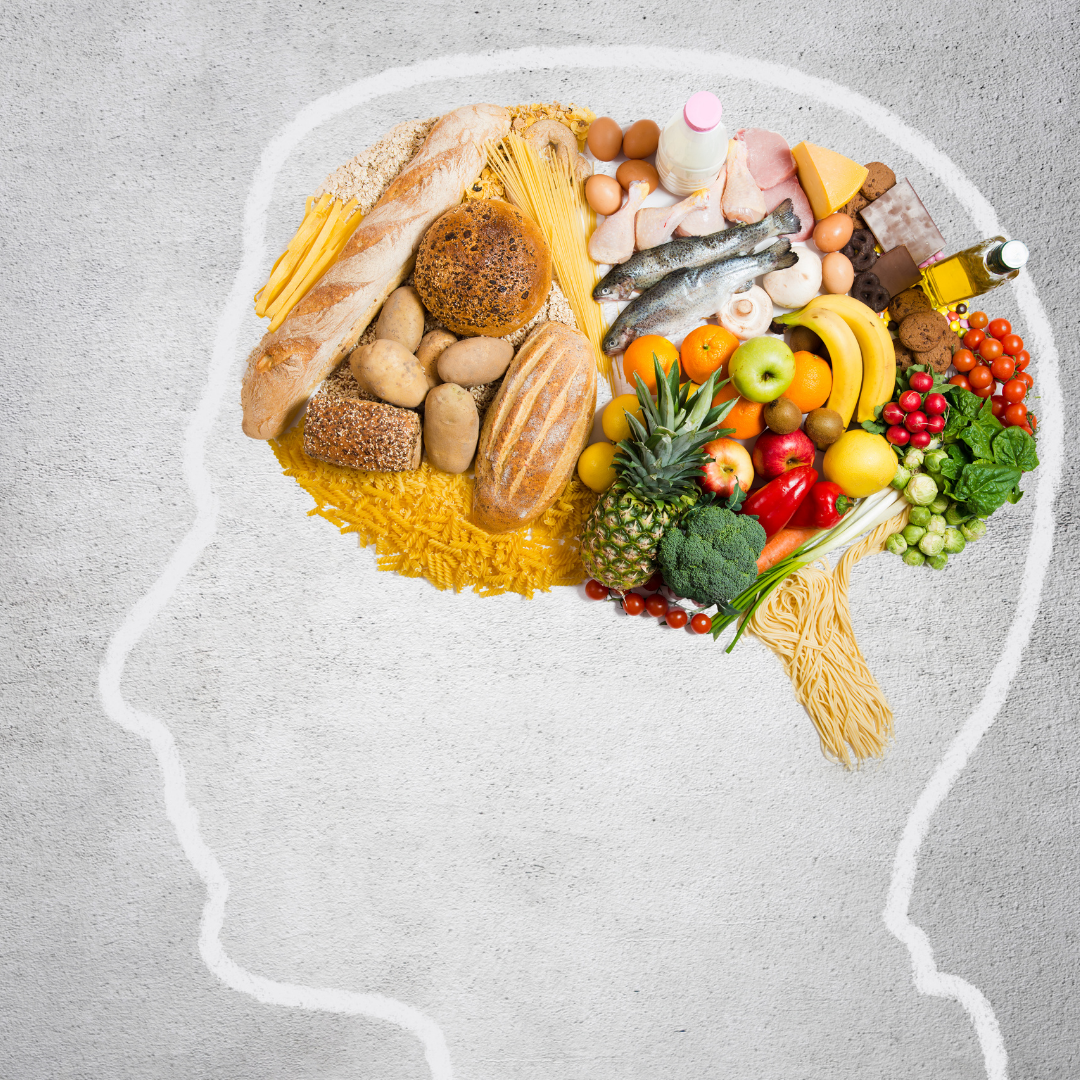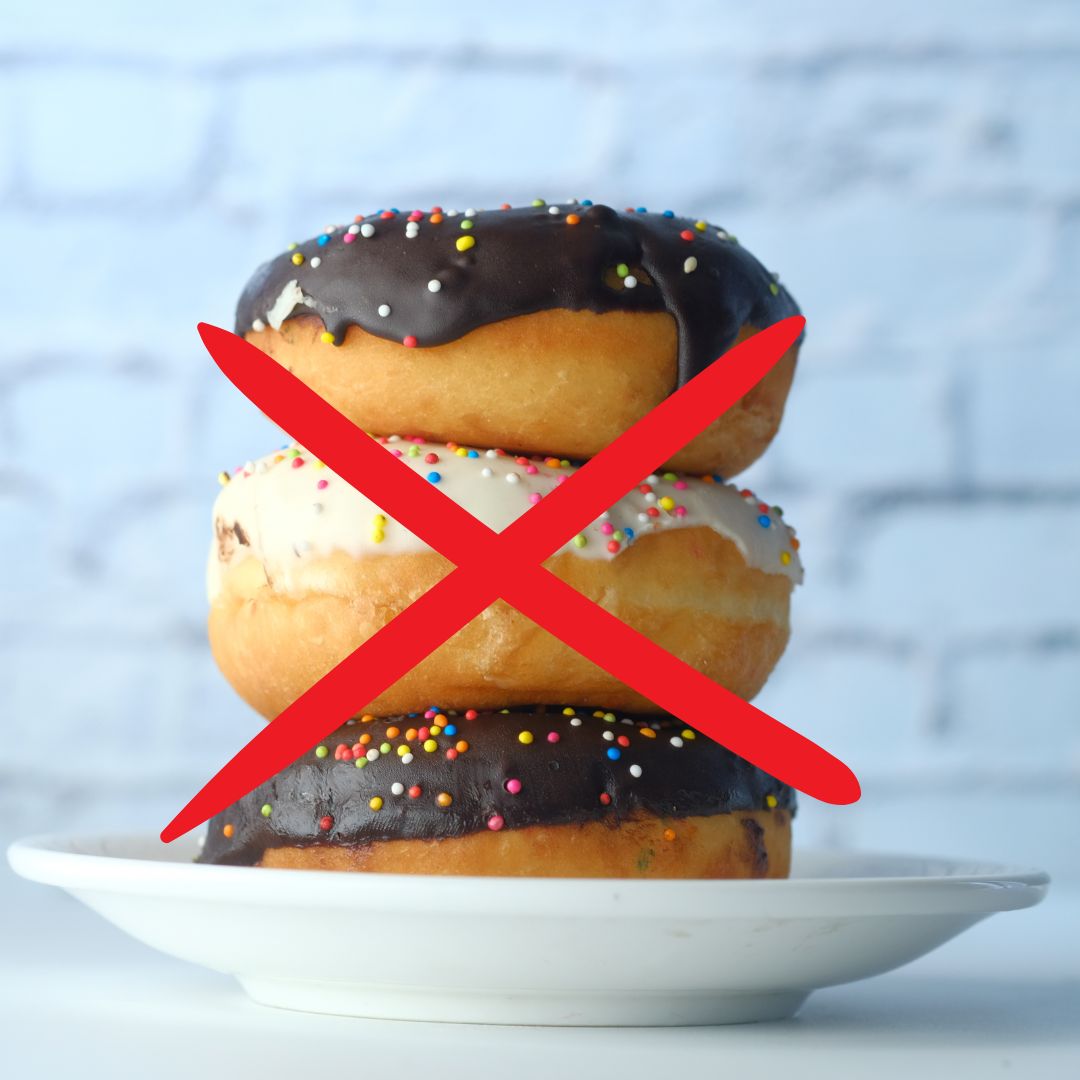Boost your Brain and Beat Exam Stress
May 17, 2023
Posted by: Monique Parker

Exam season is here and of course you need to be prepared for this important event.
Many people suffer from exam stress, for different reasons, and it’s totally natural. A bit of exam stress can actually get you into gear to work harder! The trick is not to let the stress get out of control, as it could negatively affect performance, i.e. sleeping problems, anxiety etc.
There are many ways to beat exam stress and various things you can do to get into tip-top shape to get through your exams. Apart from revision tips such as making a realistic revision schedule or taking regular breaks while you revise, there is much more. Things like stress, skipped meals, quick food fixes and late nights will all negatively affect your brain function and overall health, so they need to be addressed too.
Let’s start with your ‘fuel’, to keep you going through revision and exams.
Good Nutrition

What you’re eating can help determine how much energy you’ve got, how alert you are and how good your concentration and memory is. All very important for revision and exams.
Did you ever notice feeling sleepy after eating a big plate of pasta? Research has shown that people eating foods that are very high in carbohydrates are likely to have subdued brain activity. However, protein foods can rectify this mental lethargy caused by carbs.
So, what happens if you grab a pack of chocolate biscuits to keep you going during revision? Chocolate biscuits are very high in carbohydrates. All carbs are broken down into glucose, and all this glucose makes your blood sugar level rise sharply. This ‘sugar-spike’ triggers the release of a large amount of insulin, a hormone that helps your body use glucose for energy. The glucose is taken up by the body very quickly, causing a ‘sugar crash’. Your blood glucose level drops dramatically, leaving you tired, craving more sugar and having brain fog.
The biggest impact of food on the brain has to do with
neurotransmitters. 
Neurotransmitters are chemicals that send information from brain cell
to brain cell. Each neurotransmitter is made from a specific amino
acid, with the help of specific nutrients called co-factors. To give you
an example, let’s look at tryptophan. Tryptophan is an amino acid
that is found in eggs, cheese, nuts, and seeds for instance. It is made into serotonin, a neurotransmitter that is involved in sleep, memory
and other brain processes.
Also, don’t forget there are many foods that can boost your immune system. Stress and lack of sleep, which are quite common during the exam period, can seriously affect your immune system. You really don’t want to go down with a nasty cold on the day of your exam!
So, with all the above in mind, what foods will help you get through revision and exams?
Brain Foods

Eggs contain choline, a co-factor for the neurotransmitter acetylcholine, that helps memory and mental clarity. Eggs also contain vitamin D which has brain-protective properties, improves memory, and increases problem-solving ability.
Oily fish such as salmon, mackerel, anchovies, sardines, and herring. These fish contain a good level of omega-3 fatty acids which are needed for the structure and function of neurotransmitter receptors. About 60% of your brain is made of fats. 25% of that is DHA, an omega-3 fatty acid!
Nuts and seeds, such as walnuts, Brazil nuts, almonds, pumpkin seeds, chia seeds and sesame seeds. Good sources of omega-3 fatty acids, but also magnesium which is required for nerve function and neurotransmitter release.
Fruit and vegetables, particularly citrus fruit, kiwi, berries, green leafy vegetables, cruciferous vegetables (broccoli, cauliflower, rocket, Brussels sprouts etc.), sweet potato and bell pepper, as these are high in vitamin C. Vitamin C is essential in the production of neurotransmitters. Multi-coloured fruit and vegetables also contain antioxidants which protect you brain from free radical damage. Vegetable sticks with hummus, sliced apple with nut butter or guacamole with oatcakes are great snacks!
Fibre from fruit and vegetables, pulses, wholegrains etc. Fibre is important for gut health. What does this have to do with your brain you might think. Well, gut health and brain function are actually intrinsically linked. 90% of serotonin, and other neurotransmitters are made in the gut!
Meat, fish, dairy, eggs as they are a great source of the B vitamins, which are needed for neurotransmitter production. Especially vitamin B6, B9 and B12 as they improve brain function. Meat etc. is also a good source of zinc, which is the most abundant trace mineral in the brain. Hard-boiled eggs, a small piece of cheese or a roasted chicken drumstick keep you going in between meals.
Green tea contains, apart from powerful antioxidants, an amino acid called L-theanine, which works well on the nervous system and is very calming. It also contains caffeine but a lot less than coffee, but still enough to improve your brain function, including memory, reaction time and alertness. L-theanine and caffeine combined are very powerful at improving brain function. It is one of my favourite drinks while studying.
Stress-Busters
- Dark chocolate (in moderation) contains magnesium which reduces stress hormones and is full of antioxidants.
- Nuts and seeds as these are also good sources of magnesium, especially walnuts.
- Oats are high in magnesium, B-vitamins, zinc, dietary fibre, and protein
- Vitamin C-rich foods such as fruit and vegetables as it inhibits the release of stress-hormones.
- Bananas are a good source of vitamin B6, vitamin C, potassium and fibre. They also contain tyrosine, which regulates and stimulates dopamine, the neurotransmitter that is key in motivation and focus. Bananas are quite high in carbohydrates, but don’t worry, if you eat a banana with protein (i.e. in a smoothie with yoghurt or milk), your blood sugar level doesn’t go up as quickly as a banana on its own.
- Green tea as it is calming.
Immune-Boosters
Eat plenty of fresh fruits, vegetables, and wholegrains – rich in vitamins, minerals, fibre and antioxidants.
Onions and garlic act as natural antibacterial and antiviral agents. Include them in savoury dishes and salads.
Reduce immune-depressors – coffee, tea, alcohol, sugar, refined processed foods – these all rob the body of nutrients while giving it nothing in return.
Eat plain live yoghurt daily (if you’re eating dairy) to maintain levels of friendly bacteria in the gut. The ‘gut flora’ forms a very large part of the immune system, about 70-80%!! Eating plenty of fruits, vegetables and whole grains also provides these friendly bacteria with food.
Some general nutrition tips:
You won’t be able to concentrate when you’re hungry, so eat regularly. Also, skipping meals increases the chance you’ll grab an unhealthy snack and it reduces your energy. Whatever you do, eat breakfast! A good breakfast would be scrambled eggs on whole-wheat toast.
Don’t eat very big meals as this could make you feel sleepy. Your body uses lots of energy to digest all that food. It is better to have smaller meals and a healthy snack in between.

Don’t go for the high-sugar snack, no matter how tempting. They cause the ‘sugar spikes’ I mentioned before, leaving you fatigued and lacking in mental clarity.
Eat protein and good fats (coconut oil, organic butter, olive oi, ghee, avocado) with every meal to avoid ‘sugar spikes’.
Water, water, water! Make sure you stay hydrated. Don’t wait until you get thirsty, but make sure you drink at least 6-8 glasses of water a day. Even mild dehydration impairs physiological and performance responses. Also, a lot of nutrients dissolve in water, so they can be absorbed more easily in the digestive tract.
Next on the agenda is sleep, one of the most important conditions of the body and mind that is needed to be healthy and function.
SLEEP

We all know sleep is important. Most teenagers need between 8-9 hours sleep a night, some even more. While you’re sleeping, the brain forms new pathways and processes information. Sleep also plays an important role in the consolidation of memory.
Research done among forty normal, healthy early-adolescents showed that the group that slept for 12 hours had 20.6% better declarative memory than the group that didn’t sleep (Trudeau Potkin & Bunney, 2012).
And that is not all. Sleeping helps the body recuperate, the brain included. Substances that accumulate during the day, such as adenosine and beta-amyloid, are being ‘washed’ out while you’re sleeping. The brain cells are being detoxified and cleansed.
What can improve sleep?
Try to unwind at least half an hour before you go to bed. Have a bath or listen to some relaxing music.
Turn of electronic devices such as mobile phone, iPads and computers. Apart from being a distraction and making you stay up later then you intend, even your mobile phone emits enough light to affect the brain and promote wakefulness. Bright lights at night can suppress the natural production of melatonin, a hormone that regulates the sleep-wake cycle.
Sleep in a quiet, dark, cool room with enough fresh air.
Eat at least 3 hours before bedtime.
Don’t consume any stimulating drinks such as coffee, Coke or energy drinks after midday. Caffeine has a half-life of about 6 hours in healthy adults, meaning it takes the body 6 hours to eliminate 50% of the caffeine. It’s best to avoid stimulating drinks all together as they can cause increased anxiety, insomnia etc. if consumed in high doses.
Spray some lavender on your pillow.
EXERCISE
Exercise encourages your brain to work at optimum capacity by causing nerve cells to multiply, strengthening their interconnections and protecting them from damage. (Dr Mercola, 2012).
So getting away from your desk, moving around, can actually boost brain activity and improve memory.
It is also a good distraction and great to beat stress. Exercise reduces levels of the body's stress hormones, such as adrenaline and cortisol. It also stimulates the production of endorphins, chemicals in the brain that are the body's natural painkillers and mood elevators.
LISTENING TO MUSIC
Music improves memory performance, concentration, and attention.
For revising, it's important that the music is instrumental, otherwise you're more likely to remember the lyrics of the background song than what you're supposed to be revising!
Music that is easy to listen to or relaxing classics improve the duration and intensity of concentration in all age groups and ability levels. (eMedExpert, 2016)
MEDITATION
Meditation can improve concentration and focus, and it also relieves stress and anxiety.
There are many apps available and it doesn’t take much time. Even as little as 10 minutes of meditation will make you feel calmer.
My favourite apps are: Headspace, Buddhify, Calm, Omvana and The Honest Guys. Most of them are free.

GOOD LUCK WITH YOUR REVISION AND YOUR EXAMS!! YOU CAN DO IT!!
Sources:
Bravo, J.A. et al (2011), ‘Ingestion of Lactobacillus strain regulates emotional behavior and central GABA receptor expression in a mouse via the vagus nerve’, Proc Natl Acad Sci U S A. 2011 Sep 20; 108(38): 16050–16055. https://www.ncbi.nlm.nih.gov/pmc/articles/PMC3179073/
Carper, J. (2010). Food – your miracle medicine. Simon & Schuster UK Ltd. P325-337
Carrasco, A. Dr (2013), ‘5 Benefits Of A 10-Minute Meditation Practice’ https://www.mindbodygreen.com/0-8171/5-benefits-of-a-10-minute-meditation-practice.html
Chacko, S.M. et al (2010). Beneficial effects of green tea: A literature review. Chin Med. 2010; 5: 13. https://www.ncbi.nlm.nih.gov/pmc/articles/PMC2855614/
eMedExpert (2016), ‘How Music Affects Us and Promotes Health’,
http://www.emedexpert.com/tips/music.shtml
Foster, J.A. et al (2017), ‘Stress & the gut-brain axis: Regulation by the microbiome’,
http://www.sciencedirect.com/science/article/pii/S2352289516300509
Gomez-Pinnilla, F. (2008), ‘Brain foods: the effects of nutrients on brain function’, Nat Rev Neurosc. 2008 July; 9(7): 568-578 https://www.ncbi.nlm.nih.gov/pmc/articles/PMC2805706/
Gowin, J. (2012), ‘Brain Scans Show How Meditation Improves Mental Focus’
https://www.psychologytoday.com/blog/you-illuminated/201204/brain-scans-show-how-meditation-improves-mental-focus
Gunners, K. (2017) ’10 Proven Benefits of Green Tea’,
https://authoritynutrition.com/top-10-evidence-based-health-benefits-of-green-tea/
Harvard Health Publications (2011), ‘Exercising to relax’,
http://www.health.harvard.edu/staying-healthy/exercising-to-relax
Kleiner, S.M. (1999), ‘Water: an essential but overlooked nutrient’, http://www.uic-cphp.org/cms/20/resources/Files/jadawater.pdf
Mercola, Dr. (2012), ‘Nine Ways To Make Yourself Smarter’, http://articles.mercola.com/sites/articles/archive/2012/05/17/good-brain-health-tips.aspx
Nicolle, L. & Bailey, C. (2013). The Functional Nutrition Cookbook. London & Philadelphia: Singing Dragon. P203-211
Trudeau Potkin & Bunney (2012), ‘Sleep Improves Memory: The Effect of Sleep on Long Term Memory in Early Adolescence’ http://journals.plos.org/plosone/article?id=10.1371/journal.pone.0042191
University of Basel (2014), ‘Green tea extract boosts your brain power, especially the working memory, new research shows’, https://www.sciencedaily.com/releases/2014/04/140407101545.htm
University of Illinois (2006), ‘Exercise Appears To Improve Brain Function Among Younger People’,
https://www.sciencedaily.com/releases/2006/12/061219122200.htm
Wilson & Morley (2003), ‘Impaired cognitive function and mental performance in mild dehydration’,
European Journal of Clinical Nutrition (2003) 57, Suppl 2, S24–S29.
http://www.nature.com/ejcn/journal/v57/n2s/full/1601898a.html






